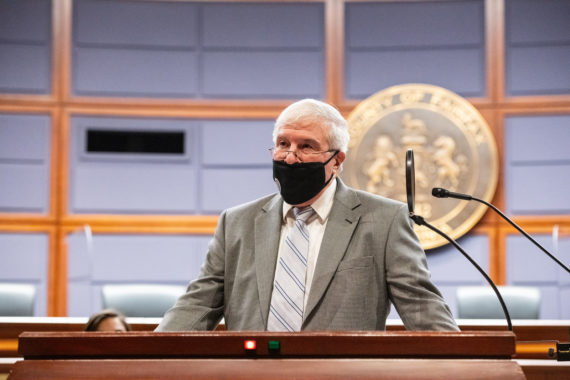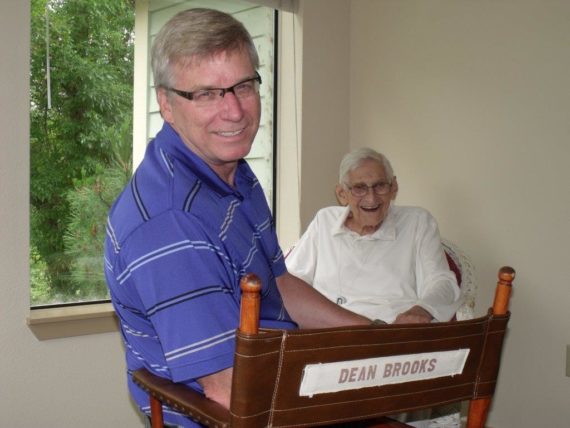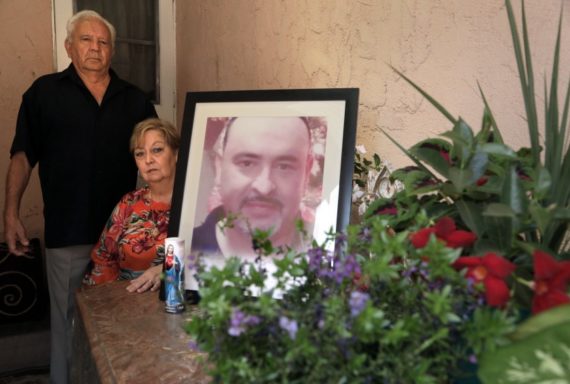
Gary Ambrose, retired brigadier general, who lost his son to mental illness, speaks at Fairfax County Mental Health Docket graduation. Photo Courtesy of Fairfax County Government.
(10-15-20) This is the second in a three part series about Fairfax County’s mental health docket. Yesterday, I posted Washington Post Columnist Petula Dvorak’s profile of one of the first graduates from the docket program. Today, I look at the history behind the docket and statistics about those it helps.
More than a third of individuals with mental illnesses who participate in the Fairfax County’s mental health docket have been diagnosed with schizophrenia. More than half have drug and substance addictions and nearly half are homeless. The court helps link them with services so they can address those problems – as well as their criminal conduct.
I’ve been advocating for a mental health docket in my local county since 2008. Fairfax County finally submitted an application to the Virginia Supreme Court in January 2019 and launched its docket in July 2019, It held its first graduation ceremony earlier this month. Fairfax General Court Judge Tina Snee issued completion certificates to three graduates with diagnosed mental illnesses who volunteered to participate in a rigorous treatment program instead of being punished through the traditional criminal justice system.
More than 350 mental health courts/dockets operate nationally. About two-thirds have been supervising cases since 2000. Studies have found that those who complete a court’s requirements tend to have lower rates of criminal activity and increased linkages to treatment services than defendants with mental illnesses who do not.
Judge Snee currently has eighteen participants under her supervision on her docket. Fairfax is one of eleven Virginia jurisdictions with a mental health docket, including one in Fairfax’s neighbor, Loudon County. The state also has approved a behavioral docket in Arlington. There are 95 counties in Virginia, so these dockets remain in a minority in our state.
Fairfax County also operates a Veteran’s Treatment Docket and a drug court. It was Judge Penney S. Azcarate who got support and approval in 2014 for a Veteran’s Treatment Docket. (Judge Azcarate served four years in the U.S. Marine Corps.) Judge Azcarate also oversees the Fairfax County Drug Court. Judge Azcarate’s actions are what opened the door in the county’s judiciary for a mental health docket.
Sadly, the death of Natasha McKenna, an African American woman with a serious mental illness, who died in 2015 after being repeatedly stunned with a Taser at the Fairfax County’s Adult Detention Center, is what caused the county’s elected officials to get serious about diverting individuals with mental illnesses from jail into treatment. Sheriff Stacey A. Kincaid championed the effort to create a Diversion First program. Former Board of Supervisors Chairwoman Sharon Bulova and former Supervisor John Cook immediately jumped on board. Retired Air Force General Gary Ambrose, who lost his son to mental illness, was put in charge of bringing stakeholders together to develop the country’s Diversion First program. It was launched with great excitement the same year as McKenna’s death with tremendous support from a slew of groups, including fire fighters, local police departments, the Fairfax Falls Church Community Service Board (CSB), The Office of the Public Defender, The Office of the Commonwealth’s Attorney, Court Services/Probation, General District Court (GDC) Judges, GDC Clerk’s Office, Victims’ Services Section – Fairfax County Police Department, and the Fairfax County Sheriff’s Office. The county’s Diversion First program has been operating for five years and is the umbrella over which the mental health docket rests.






